2-8. 'Cooking in the earth oven', 'resharpening the adze', 'making the adze go asleep',
haka-kaikai
toki,
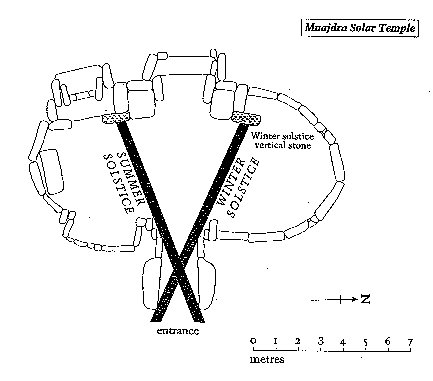
... Marija Gimbutas:
'To sleep within the Goddess's womb was to die and to come to
life anew' ...
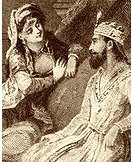
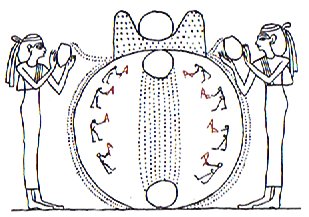
.jpg)
was mentioned by Metoro at glyph number 47 (Ea2-15) and then
never again in the E text (except in its mirror form toki haka-kaikai).
A fortnight after December 16 (350
→ 13 * 27 - 1), when Zuben Elgenubi
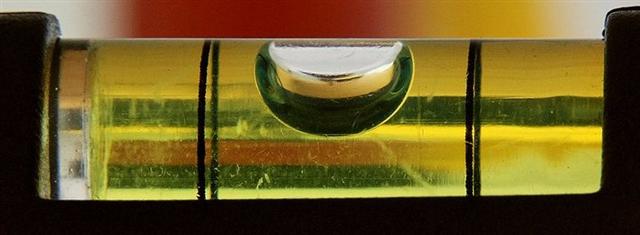
culminated at 21h and when the Full Moon (ideally) should be at
the right ascension line connected with Betelgeuze (*88), was
day 364 (→ 4 * 91 = 52 weeks = 26
fortnights):
|
Dec 16 (350) |
*10 |
Dec 26 (178 +
182) |
VEGA (*281 = *99
+ *182) |
 |
 |
 |
|
Ea2-1 (33) |
Ea2-11 (33 +
10) |
Ea2-12 |
|
June 16 (*88)
ZUBEN ELGENUBI (α Librae)
|
ihe hokohuki -
ku kikiu |
June 27 (*99)
GEMMA (α
Cor. Bor.)
|
|
Dec 28 |
29 → 408 - 45 =
363 |
30 (361 + 3) |
|
OCT 26 |
27 (300 → 363
- 63) |
28 (→ 365 -
64) |
 |
 |
 |
|
Ea2-13 |
Ea2-14 → 45 |
Ea2-15 |
|
e tagata - rere toki |
ki te henua |
e tagata
hakakaikai toki - ki te henua koti |
|
Kaikai. 1. Cat's cradle, in
which patterns are made by moving a thread through
the fingers of both hands, and are accompanied by
the recitation of verses (one of the main pastimes
of yore). 2. Sharp: also 'to sharpen' used instead
of hakaka'ika'i. Vanaga. 1. Mastication, to
eat heavily. 2. Sharp, cutting, edge of a sword,
point of a lance; moa tara kaikai, cock with
long spurs. Churchill.
Koti. Kotikoti. To cut with
scissors (since this is an old word and scissors do
not seem to have existed, it must mean something of
the kind). Vanaga. Kotikoti. To tear;
kokoti, to cut, to chop, to hew, to cleave, to
assassinate, to amputate, to scar, to notch, to
carve, to use a knife, to cut off, to lop, to gash,
to mow, to saw; kokotiga kore, indivisible;
kokotihaga, cutting, gash furrow. P Pau.:
koti, to chop. Mgv.: kotikoti, to cut, to
cut into bands or slices; kokoti, to cut, to
saw; akakotikoti, a ray, a streak, a stripe,
to make bars. Mq.: koti, oti, to cut,
to divide. Ta.: oóti, to cut, to carve;
otióti, to cut fine. Churchill. Pau.: Koti,
to gush, to spout. Ta.: oti, to rebound, to
fall back. Kotika, cape, headland. Ta.:
otiá, boundary, limit. Churchill.
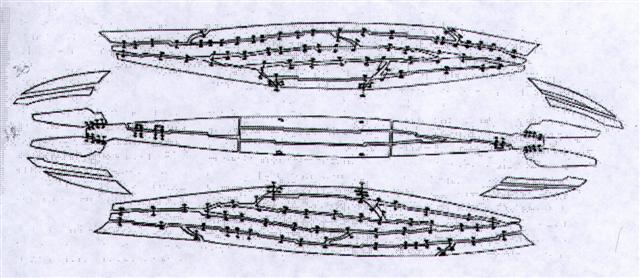
vaka
↔
kava
↕
toki
↔
koti
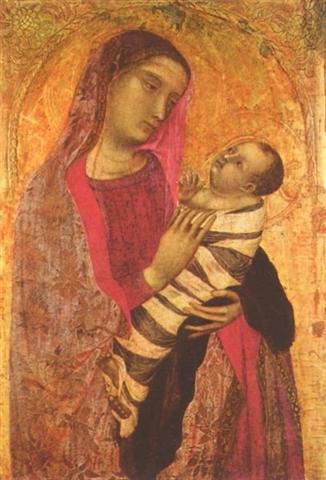 |
|
ψ4 Aurigae (100.5),
MEBSUTA (Outstretched) = ε Gemini
(100.7) |
SIRIUS = α Canis Majoris
(101.2),
ψ5
Aurigae (101.4),
ν Gemini (101.6), ψ6 Aurigae (101.7)
*60.0 = *101.4 - *41.4 |
τ
Puppis (102.2),
ψ7
Aurigae (102.4)
*61.0 = *102.4 - *41.4 |
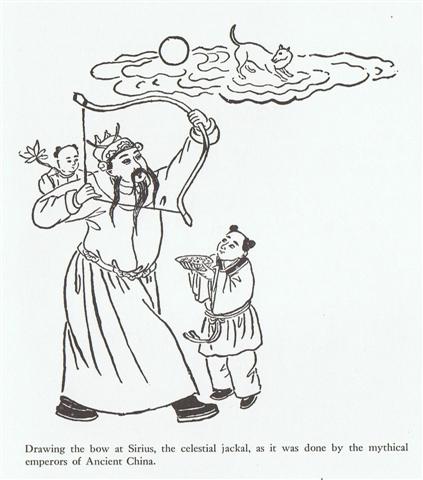
... The Sothic
cycle was based on what is referred to in technical
jargon as 'the periodic return of the heliacal
rising of Sirius', which is the first appearance of
this star after a seasonal absence, rising at dawn
just ahead of the sun in the eastern portion of the
sky. In the case of Sirius the interval between one
such rising and the next amounts to exactly
365.25 days - a mathematically harmonious figure,
uncomplicated by further decimal points, which is
just twelve minutes longer than the duration of the
solar year ... |
|
June 29 (180) |
30 |
July 1 (182) |
Counting
300 (OCTOBER 27) + 55 (Ea2-23) = 355 suggests DECEMBER 21, the day of the
winter solstice. Counting 80 + *55 = 135 suggests day 365 + 135 = 500
and MAY 15 (355 + 290 / 2).
... A sidelight falls upon the notions
connected with the stag by Horapollo's statement concerning
the Egyptian writing of 'A long space of time: A Stag's
horns grow out each year. A picture of them means a long
space of time.' Chairemon (hieroglyph no. 15, quoted by
Tzetzes) made it shorter: 'eniautos: elaphos'. Louis
Keimer, stressing the absence of stags in Egypt, pointed to
the Oryx (Capra Nubiana) as the appropriate 'ersatz',
whose head was, indeed, used for writing the word rnp
= year, eventually in 'the Lord of the Year', a well-known
title of Ptah. Rare as this modus of writing the word seems
to have been - the Wörterbuch der Aegyptischen Sprache
(eds. Erman and Grapow), vol. 2, pp. 429-33, does not even
mention this variant - it is worth considering (as in every
subject dealt with by Keimer), the more so as Chairemon
continues his list by offering as number 16: 'eniautos:
phoinix', i.e., a different span of time, the
much-discussed 'Phoenix-period' (ca. 500 years).
There are numerous Egyptian words for
'the year', and the same goes for other ancient languages.
Thus we propose to understand eniautos as the
particular cycle beloning to the respective character under
discussion: the mere word eniautos ('in itself',
en heauto; Plato's Cratylus 410D) does not say more that
just this. It seems unjustifiable to render the word as 'the
year' as is done regularly nowadays, for the simple reason
that there is no such thing as the year; to begin
with, there is the tropical year and sidereal year, neither
of them being of the same length as the Sothic year.
Actually, the methods of Maya, Chinese, and Indian time
reckoning should teach us to take much greater care of the
words we use. The Indians, for instance, reckoned with five
different sorts of 'year', among which one of 378 days, for
which A. Weber did not have any explanation. That number of
days, however, represents the synodical revolution of
Saturn. Nothing is gained by the violence with which the
Ancient Egyptian astronomical system is forced into the
presupposed primitive frame.
The eniautos of the Phoenix would
be the said 500 (or 540) years; we do not know yet the
stag's own timetable: his 'year' should be either 378
days or 30 years, but there are many more possible periods
to be considered than we dream of - Timaios told us as much.
For the time being the only important point is to become
fully aware of the plurality of 'years', and to keep an eye
open for more information about the particular 'year
of the stag' (or the Oryx), as well as for other
eniautio, especially those occurring in Greek myths
which are, supposedly, so familiar to us, to mention only
the assumed eight years of Apollo's indenture after having
slain Python (Plutarch, De defectu oraculorum, ch.
21, 421C), or that 'one eternal year (aidion
eniauton)', said to be '8 years (okto ete)',
that Cadmus served Ares ...
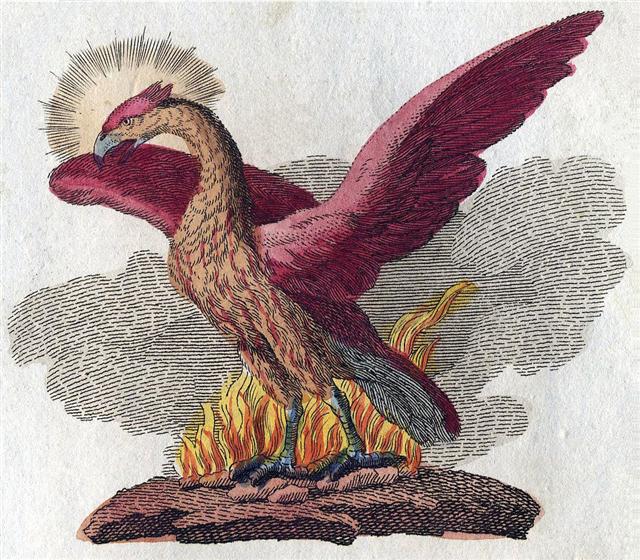
In both cases these were days before light would be
rekindled.
|
Jan 4 |
5 (370 → 5 * 74) |
6 (365 + 6 = 371) |
7 |
 |
 |
 |
 |
|
Ea2-20 |
Ea2-21 (53) |
Ea2-22 (2 * 27
→
π) |
Ea2-23 (55) |
|
ki te marama e |
kua oho koe - ki haga o tere
hia |
ma te hokohuki - E te moa e |
ka mau koe i te tao |
|
Tere. 1. To run, to flee, to escape from
a prison. 2. To sail a boat (also: hakatere);
tere vaka, owner of a fishing boat. 3.
(Deap-sea) fisherman; tere kahi, tuna
fisherman; tere ho'ou, novice fisherman, one
who goes deap-sea fishing for the first time.
Penei te huru tûai; he-oho te tere ho'ou ki ruga ki
te hakanonoga; ana ta'e rava'a, he-avai e te tahi
tagata tere vaka i te îka ki a îa mo hakakoa, mo
iri-hakaou ki te hakanonoga i te tahi raá. The
ancient custom was like this: the novice fisherman
would go to a hakanonoga; if he didn't catch
anything, another fisherman would give him fishes to
make him happy so he'd go again one day to the
hakanonoga (more distant fishing zones where
larger fishes are found). Vanaga. To depart, to run,
to take leave, to desert, to escape, to go away, to
flee, fugitive, to sail, to row, to take refuge, to
withdraw, to retreat, to save oneself; terea,
rest, defeat; tetere, to beat a retreat, to
go away, refugee; teretere, to go away,
hurrah; hakatere, to set free, to despatch,
to expel, to let go, to liberate, to conquer,
helmsman; terega, departure, sailing;
teretai, a sailor. Churchill.
Tao.
1. To cook in an oven, to sacrifice. P
Mgv., Mq., Ta.: tao, to cook in an oven. 2.
To carry away. 3. Abscess, bubo, scrofula, boil,
gangrene, ulcer, inflammation, sore. Mgv.:
taotaovere, small red spots showing the approach
of death. Mq.: toopuku, toopuu, boil,
wart, tumor. Ta.: taapu, taapuu,
scrofula on neck and chin. 4. Mgv.: a lance, spear.
Ta.: tao, id. Sa.: tao, id. Ma.:
tao, id. 5. Mgv.: taotaoama, a fish.
Sa.: taotaoama, id. 6. Ta.: taoa,
property, possessions. Ma.: taonga, property,
treasure. Churchill. Sa.: tao, to
bake; taofono, taona'i, to bake food
the day before it is used; tau, the leaves
used to cover an oven. To.: tao, to cook food
in a oven, to bake. Fu.: taò, to put in an
oven, to cook. Niuē:
tao, to
bake. Uvea: tao,
to cook, to bake. Ma., Rapanui: tao,
to bake or cook in a native oven, properly to steam,
to boil with steam. Ta.: tao,
the rocks and leaves with which a pig is covered
when cooking; baked, boiled, cooked. Mq., Mgv., Mg.,
Tongareva: tao,
to bake in an oven ... The word refers to the
specific manner of cookery which involves the pit
oven. The suggestion in the Maori, therefore, does
not mean a different method; it is but an attempt
more precisely to describe the kitchen method, a
very tasty cookery, be it said. The suggestion of
boiling is found only in Tahiti, yet in his
dictionary Bishop Jaussen does not record it under
the word bouillir;
boiling was little known to the Polynesians before
the European introduction of pottery and other
fire-resisting utensils ... Churchill 2.
Kao-kao, v. Haw.,
be red. Root and primary meaning obsolete in Haw.
Sam., tao,
to bake. Marqu., tao,
bake, roast, sacrifice. Tah., tao,
baked, boiled, cooked. Greek, καιω,
Old Att. καω,
to light, kindle, burn, scorch. According to Liddell
and Scott, Pott refers καιω
to Sanskrit çush,
be dry, but Curtius rejects this. In Dravid. (Tamil)
kay, to
be hot, burn. Fornander.
.jpg) |
|
WEZEN (Weight) =
δ
Canis Majoris
(107.1),
τ
Gemini (107.7),
δ
Monocerotis (107.9) |
No star listed (108) |
λ
Gemini (109.4),
WASAT (Middle) = δ Gemini
(109.8)
*68.0 = *109.4 - *41.4 |
No star listed (110) |
|
July 6 (369 - 182) |
7 (188) |
8 |
9 |
 |
... Rovi took the eel trap. He picked it up and went to the
sea to catch eel, which were supposed to be a side dish (inaki)
for King Tuu Maheke's sweet potatoes [te
kumara.o te ariki.a Tuu maheke]. He stayed there
and went about catching eels. But Rovi stayed late catching
eels, and Tuu Maheke became hungry while he waited all by
himself. Night came, and King Tuu Maheke remained without
food. When King Tu Maheke grew hungry, he sat down inside
the house and cried [he
noho-he tangi.i roto i te hare.tupa tuu]. He was
all alone [hokotahi]
in Hare Tupa Tuu because [no]
the mother (too) had gone away to dig up sweet potatoes [te
matua tamatahine.ku oho ana ki te kumara are],
and cook them in the earth-oven [mo
tao], and roast them, and bring them to the king
... [E:92]
Here my imagination perceives
a kind of eel at right in Ea2-24
(→ 4 * 56 → 32 weeks):
| Jan
8 |
9 |
10 |
11 |
12
(377) |
 |
 |
 |
 |
 |
|
Ea2-24 (56) |
Ea2-25 |
Ea2-26 |
Ea2-27 → π |
Ea2-28 (60) |
| e tagata tu ara i te toki -
kua tua koia |
e tagata mau e toki erua e |
ka rere te toki - i te henua |
rere te toki - rere ki te
verega |
rere te toki rere ki te
henua e tagata tagi karaga era e |
|
Ara. 1. Road, path; ladder. 2. To wake up, to
concentrate on something; he-ara te mata, to inspect attentively;
hé-ara, he-ûi a raro o te vai kava, concentrating, he looked at
the sea-bottom. Ará-ará, to signal, to send signals with the hand
(to another person in the distance): he-haaki-atu hai rima ará-ará.
Vanaga. 1. Path, trail, road, way. 2. a. To awake, to arouse; veve
ara, to awaken; hakaara, to arouse, to excite. b. To be
awake; hakaara, to be awake; ara no, insomnia,
sleeplessness. c. To watch, to guard; tagata ara, sentinel.
Churchill.
Vere. 1.
Beard, moustache (vede G); vere gutu, moustache;
verevere, shaggy, hairy, tow, oakum. Mgv.: veri, bristly,
shaggy, chafed (of a cord long in use). Mq.: veevee, tentacles.
Ta.: verevere, eyelash. 2. To weed (ka-veri-mai, pick,
cut-grass T); verevere, to weed. P Mgv.: vere, to weed.
Mq.: veéveé, vavee, id. 3. Verega, fruitful,
valuable; verega kore, unfruitful, valueless, contemptible, vain,
futile, frivolous; tae verega, insignificant, valueless;
mataku verega kore, scruple. Mgv.: verega, a design put into
execution; one who is apte, useful, having a knowledge how to do things.
4. Ta.: verevere, pudenda muliebria. Ma.: werewere, id.
(labia minora). Churchill. Sa.: apungaleveleve, apongaleveleve,
a spider, a web. To.: kaleveleve, a large spider. Fu.:
kaleveleve, a spider, a web. Niuē:
kaleveleve, a cobweb.
Nukuoro: halaneveneve, a
spider. Uvea: kaleveleve, a
spider. Mgv.: pungaverevere,
a spider. Pau.: pungaverevere,
cloth. Mg.: pungaverevere, a
cobweb. Ta.: puaverevere, id.
Mao.: pungawerewere,
puawerewere, puwerewere,
a spider. Ha.: punawelewele,
a spider, a web. Mq.: pukaveevee,
punaveevee, id. Vi.:
lawa, a fishing net;
viritālawalawa, a cobweb;
butalawalawa, a spider. Churchill 2.
Tagi. To cry, to weep, to moan; tatagi, to
cry much; to cry loudly: he-tagi te karaga; tagata rava, tagi karaga,
bawling, vociferous person. Vanaga. To cry, to bark, to mew, to
bawl, to whine, to ring, to wail, to prattle, to weep, lamentation,
condolence, to regret, to affect, to wish, to will, to choose,
earnestness; tae tagi, inhuman, insensible, to refuse, to
renounce; tagi kiukiu, ring of a bell; tagi rakerake,
to wish one ill; tagi kore, indifferent; manava tagi, to
affect; hakatagi, to cause to weep, to make resound, to ring;
tagitagi, to covet; tatagi, cry mourning, grief, lamentation,
to groan, to weep, to be affected, to grow tender; tatagi tahaga,
inconsolable; tatagihaga, friendship. Churchill.
Kará. Wing of bird. Karaga, uproar, row:
he-tagi te karaga. Karatu'u, to remain upright (said of a
spinning top). Karava, low cave; hiding place under rocks in the
sea (where lobsters hide). Tagata kava - tagata kakara i te kava,
man with smelly armpits.Vanaga. Wing. Karatia, grace. Karava:
1. Cave. 2. To strain to hit a mark. Karavarava, manava
karavarava, colic. Churchill. Pau.: Kara, flint. Mgv.:
kara, a heavy stone. Ta.: ará, a black flint. Ma.: kara,
basalt. Karaea, karamea clay. Ta.: araea, id. Mq.:
kaaea, red ochre. Ma.: karamea, id. Karaga-puruga,
mother-in-law. Ta.: purua, parent-in-law. Karaini, bait,
decoy, allurement. Ta.: arainu, bait, lure. Karapoga,
throat, gullet. Churchill. Mgv.: Karaga, a cry. Sa.: 'alaga,
id. Ma.: karanga, id. Karakara, to smell slightly a
pleasant odor. Ta.: aara, good odor. Mq.: kakaa, to exhale
a pleasant odor. Sa.: 'alala, to smell of hot meat. Ma.:
kakara, savory. Karako, a bird. Mq.: kaako, id.
Karapihi, suckers of the octopus. Mq.: karapihi, kaapihi,
id. Karava, large veins which appear under strain. Sa.: 'alava,
veins, fibers. Churchill. Mq.: Karakara, a bird. Ha.: alaala,
id. Churchill. |
|
ALUDRA
(Virgin) = η
Canis Majoris
(111.1), PROPUS = ι
Gemini (111.4), GOMEISA (Water-eyed) = β Canis Minoris
(111.6)
*70.0 = *111.4 - *41.4 |
ρ
Gemini (112.1),
Eskimo Nebula = NGC2392 Gemini
(112.2)
ANTARES (α
Scorpii) |
Al Dhirā'-5 (Forearm)
/
Punarvasu-7 (The Two Restorers of Goods)
/
Mash-mashu-Mahrū-10 (Western One of the Twins)
CASTOR (Beaver) = α Gemini (113.4)
*113.4 = *41.4 + *72.0 |
ANA-TAHUA-VAHINE-O-TOA-TE-MANAVA-7 (Pillar for
Elocution)
υ
Gemini (114.0),
MARKAB PUPPIS = κ Puppis
(114.7), ο Gemini (114.8),
PROCYON = α Canis Minoris
(114.9) |
α Monocerotis (115.4),
σ Gemini (115.7)
*74.0 = *115.4 - *41.4 |
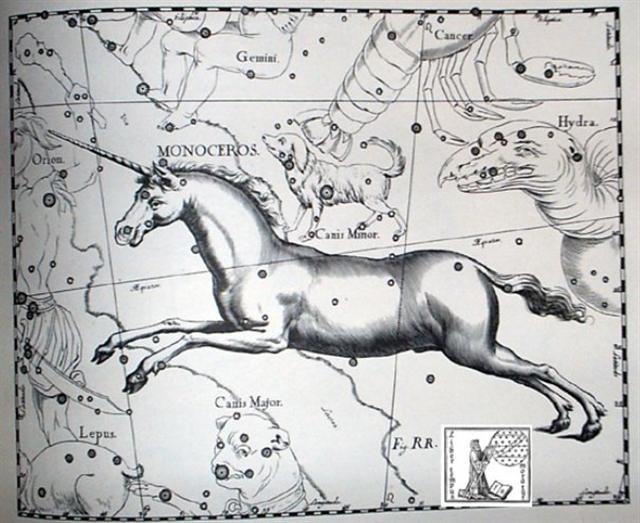 |
|
July 10 |
11 |
12 (193) |
13 |
14 |
I think we had better here
|
Egyptian house |
 |
Phoenician
beth |
 |
Greek beta |
Β (β) |
abandon my way of listing dates extrapolated down to the
Golden Age of the Bull.
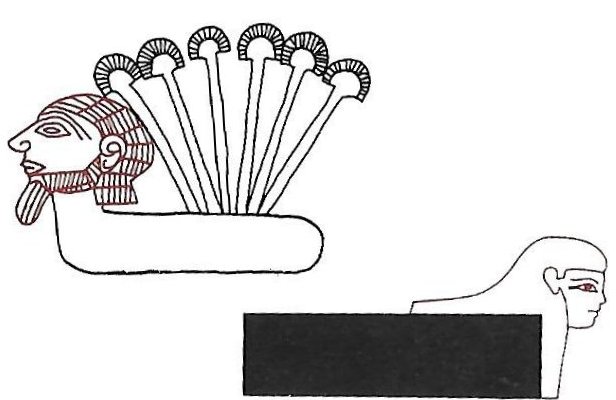
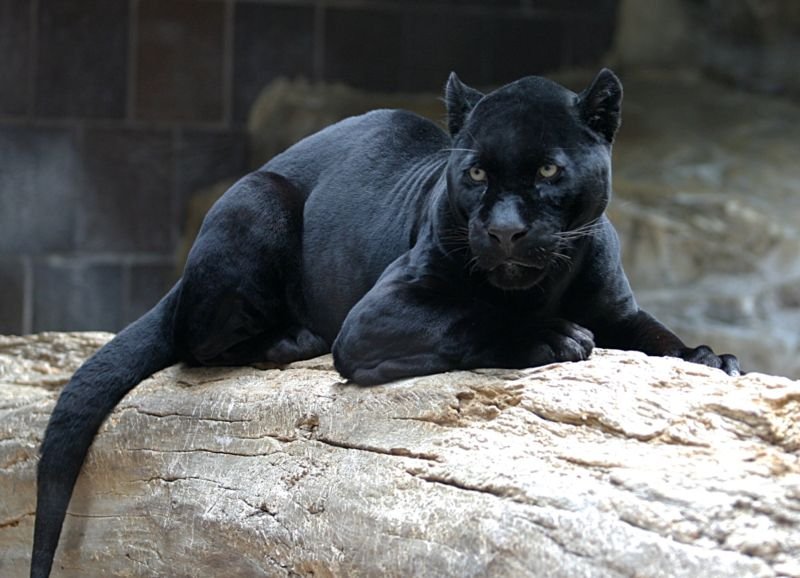
... The jaguar learned from the
grasshopper that the toad and the rabbit had
stolen its fire
while it was out hunting, and that they had taken it across
the river. While the jaguar was weeping at this, an anteater
came along, and the jaguar suggested that they should have
an excretory competition. The anteater, however,
appropriated the excrement containing raw meat and made the
jaguar believe that its own excretions consisted entirely of
ants. In order to even things out, the jaguar invited the
anteater to a juggling contest, using their eyes removed
from the sockets: the anteater's eyes fell back into place,
but the jaguar's remained hanging at the top of a tree, and
so it became blind. At the request of the anteater, the
macuco bird made the jaguar new eyes out of water, and these
allowed it to see in the dark. Since that time the jaguar
only goes out at night. Having lost fire, it eats meat raw.
It never attacks the macuco ...
... Originally the highly born family of
the Sun, Moon, and stars dwelt in a cave on the summit of
Maunga-nui, Great Mountain, in the ancient homeland.
They were not at all comfortable in their gloomy home for
they could not see distinctly and their eyes watered
constantly ...
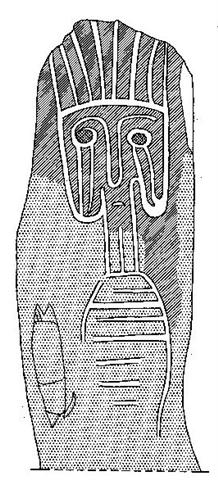
.jpg)
|




.jpg)












.jpg)













.jpg)